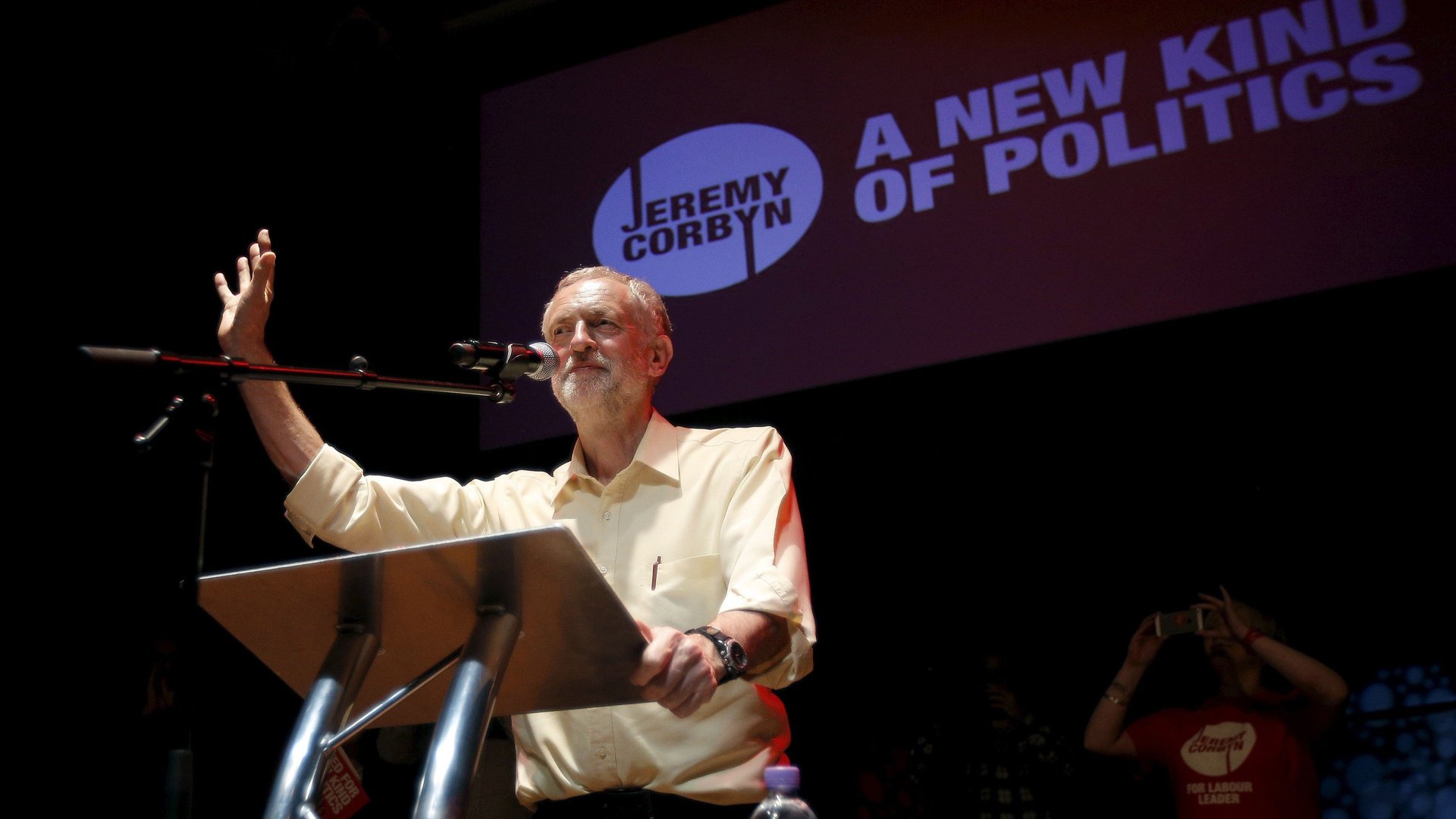Donald Trump and Jeremy Corbyn have almost nothing in common—except this
The comparisons between Britain’s Jeremy Corbyn and the US’s Donald Trump have ranged from hand-wringing to lightly amused to downright derisory. But with Corbyn, once the 100-to-1 outsider, now looking set to win the Labour leadership this weekend (though he might still not), it no longer seems absurd that Trump could bag the Republican primary.


The comparisons between Britain’s Jeremy Corbyn and the US’s Donald Trump have ranged from hand-wringing to lightly amused to downright derisory. But with Corbyn, once the 100-to-1 outsider, now looking set to win the Labour leadership this weekend (though he might still not), it no longer seems absurd that Trump could bag the Republican primary.
All the two men really share, of course, is that they’ve gained a following by emerging as “authentic” voices in an era of manufactured politics. Aside from being political opposites, they’re also in quite different roles vis-a-vis their respective parties. Corbyn is a sincere and consistent dissident—a lot more like the US’s Bernie Sanders than like Trump, who is mainly a provocateur. And the notoriously thrifty Corbyn can fairly claim to represent a lost ideal of Labour values—while Trump, though perhaps a bit less rich than he claims, is about as far removed both from Republican working-class voters and from his party’s own core beliefs (paywall) as can be.
Superficial as the Trump-Corbyn parallel may be, however, it speaks to a broader commonality. Each man embodies a crisis, both in his party and in his country’s broader politics. Like all such crises, these schisms present opportunities. They’ll spur the parties to seek out fresh blood and ideas and rediscover what voters want. In other words, this is healthy. The main question is how much upset it takes for a party to truly grasp that it has lost its way. Judging by its responses to Trump, the Republican party hasn’t grasped it yet. Judging by Corbyn’s impact, Trump may yet win the nomination before it does.
This was published as part of the Quartz Weekend Brief. Sign up for our newsletters here, tailored for morning delivery in Asia, Europe & Africa, and the Americas.